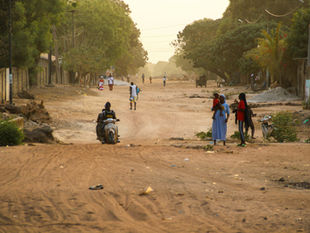.png)
LSESU WAR STUDIES SOCIETY
In a White House Statement on the 17th of September 2024, President Joe Biden addressed the ongoing crisis in Sudan, calling “upon the belligerents responsible for Sudanese suffering– the Sudanese Armed Forces (SAF) and the Rapid Support Forces (RSF) – to pull back their forces, facilitate unhindered humanitarian access, and re-engage in negotiations to end this war.” About two months ago, the United States initiated peace talks in Geneva between Lt. General Mohamed Hamdan Dagalo’s RSF and General Abdel Fattah al-Burhan’s SAF, the key parties in the current Sudanese civil war. One turned up- the RSF- whereas the SAF did not show interest in joining the talks citing that the presence of the United Arab Emirates (which they accuse of supporting the RSF with arms and financial aid) was unnecessary.
It is clear that the initial goal intended for the Geneva Talks– a ceasefire– has not been achieved but the talks have not been in vain. According to a statement put forth by the White House, negotiators have agreed on “the opening of new routes into Darfur and Khartoum, through which desperately needed humanitarian assistance is now being delivered, and permission to access some airstrips to further increase aid delivery. But we must keep pressing for more.” The statement addresses the second key objective of the Geneva talks, which aimed at creating room for humanitarian access to deprived areas. These two goals were made clear by the US Envoy to Sudan Mr. Tom Perriello at the initiation of the talks.
Over 25 million people face acute hunger in Sudan, whilst an additional one million are on the brink of starvation (United States Mission, Geneva, 2024). Humanitarian aid is increasingly crucial, especially in the Western region of Darfur where the United Nations has already declared famine and millions of people are suffering due to constant fighting. The hope is that this aid, primarily food, gets to those in need to relieve their suffering. However, it is not guaranteed that the warring parties– the RSF and SAF – will not abuse foreign aid. Throughout its history of civil wars, even before the separation of what is now independent South Sudan, warring parties in Greater Sudan have consistently used humanitarian aid as a tool for strategic purposes. Humanitarian aid, while providing help to innocent civilians, will also serve as a means of prolonging the war. This is a critical issue that the Aligned for Advancing Lifesaving & Peace in Sudan (ALPS) Group, which helped call together the two wavering parties, should address in Geneva.
A ceasefire, on the other hand, would have been a worthy and impactful deal but the warring parties (especially the SAF) have unrealistic terms and conditions. According to official statements by Malik Agar, the current vice president of Al Burhan’s Sudan government, going into a negotiation with the RSF is “committing a political suicide”. This view reveals much about the position of the SAF not turning up for the talks and how they think the conflict should be resolved. Thus, the Geneva discussions were naturally bound to fail in their aims of achieving a ceasefire. The SAF will accept nothing less than complete military subordination of the RSF and the RSF surrendering their sovereign will. This, however, is a prospect the RSF cannot lend a single ear to listen to.
The civil war sees no end soon. Perhaps the humanitarian agreement signed by the warring parties, though not the best solution, will serve as a stepping stone for greater and better deals ahead. The international community, on the other hand, needs to do more and demand greater accountability from those committing atrocities on innocent civilians in Sudan.
By: Lam Dhak






